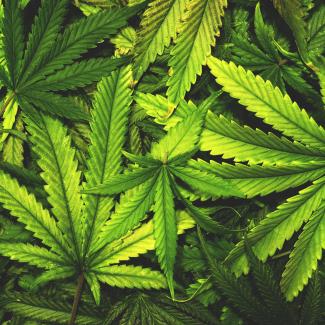Introduction
Using medical marijuana for illnesses is gaining more support from medical professionals in the United States. It has gained widespread use in helping people dealing with both mental and physical debilitating conditions.
Cannabis has recently gained more popularity as a blood thinner that can help individuals with heart conditions, even as many states in the United States are approving marijuana for medical use.
About 3 million people in the United States of America depend on blood thinners for the purpose of preventing their blood from clotting. Recently, many new studies and trends have supported the use of marijuana as a potential replacement for blood thinners.
Using marijuana or cannabis as blood thinners is because of several compounds it contains. However, medical professionals are still skeptical about recommending it as a medication for thinning the blood.
This is understandable, as more detailed studies are still needed to determine how cannabis works to thin the blood. Apart from the fact that medical cannabis can negatively affect several illnesses, there is also the worry that it can interfere with other medications. This is because cannabis can change the way the body responds to various medications. For this reason, the use of medical marijuana as a medication has not gained the support of most medical professionals.
On this note, the major reason medical marijuana is not considered a blood thinner is its ability to interfere with how the body responds to other medications. Cannabis possesses some properties that affect the way the body responds to conventional blood-thinning medications.
In this article, we are going to consider the following questions:
Is marijuana a blood thinner? / Does marijuana thin your blood?
Does smoking weed thin your blood?
Is weed a blood thinner?
Are edibles bad for your heart?
Is CBD a blood thinner?
Is hemp oil a blood thinner?
Is THC a blood thinner? / Does THC thin blood?
In the end, you will get a good grasp of the blood-thinning ability of marijuana, if it has any.
What is a blood thinner?
The term blood thinner doesn't necessarily mean that the blood-thinning medication thins your blood. Substances referred to as blood thinners possess antiplatelet or anticoagulant ability. Sometimes, they possess both antiplatelet and anticoagulant properties.
Anticoagulant medication includes heparin and warfarin that works by preventing the formation of blood clots within the body.
They work by preventing the processes that lead to clots or by preventing already formed clots within the body from growing larger by breaking them down.
Antiplatelet medications, including aspirin, have a different working mechanism for preventing blood clotting. They work by preventing platelet (a type of cell responsible for clot formation) aggregation, leading to clot formation. Platelet aggregation means the sticking together of platelets.
So a blood thinner does not thin your blood, as the name suggests. Rather, it works by either preventing platelet aggregation or preventing blood clotting formation processes and breaking them down. Preventing blot clot formation within the blood is extremely important because clots can block blood vessels. When this happens, the blood clot can lead to life-threatening situations such as stroke or heart attack, depending on the vessel it blocks.
Anticoagulant drugs like heparin and warfarin break down clots and prevent any pre-existing clots from getting bigger.
Antiplatelet medications like aspirin prevent platelets in the blood from sticking together, forming clumps that trigger clot formation. Aspirin is an over-the-counter drug that anyone can get.
What medical conditions are blood thinners used to treat?
Both anticoagulant and antiplatelet medications are used to treat several medical conditions. These conditions are either caused or can be worsened by blood clots. Some examples of these conditions include:
- Abnormal heart arrhythmias, such as atrial fibrillation
- Congenital heart disorders
- Ischemic heart disease
- Certain chronic blood vessel diseases
- Replacement of heart valve
Another condition that increases your chances of clotting is surgery. This is why medical practitioners recommend blood-thinning medications to prevent the formation of blood clots after surgery.
What are the dangers of using blood thinners?
Every medication comes with its danger, and this is the same for blood thinners. Because blood thinners work by preventing blood clot formation, this can be especially dangerous when bleeding occurs. Bleeding occurs because the blood clotting ability and platelet aggregation of the blood have been tampered with. This leaves anyone on such medications in danger of going into hemorrhagic shock when bleeding occurs.
When prescribing blood clotting medication, medical practitioners make it a habit of informing patients of the dangers of using such drugs. They always advise patients to stick to the instructions for taking such medications.
Patients are informed of the complication of using anticoagulant and antiplatelet medications, especially when combined with certain foods, vitamins, alcoholic drinks, and other medications.
This is why it is imperative to give your health practitioners all the necessary information about your medications, including foods, supplements, and lifestyle. This can help your doctor determine the level of dangers associated with you using blood-thinning medications.
Patients on blood thinners require frequent blood check-ups to determine the effectiveness of their medications and to ensure that the body is not predisposed to excessive bleeding.
Is marijuana a blood thinner?
Many people wonder, “Is cannabis a blood thinner?” Even though scientists are still not sure of the mechanism behind the blood-thinning properties of marijuana, they are aware of some of its blood-thinning properties and the effects of marijuana on blood clotting. Marijuana affects the body by impacting platelet aggregation, which is necessary for forming blood clots. This means it has antiplatelet properties.
It is not recommended or prescribed as a blood thinner because it lacks enough scientific studies and evidence to support the claim that marijuana is a blood thinner.
Can Medical Marijuana Replace Your Blood Thinners?
For marijuana to replace conventional blood-thinning medications, there need to be more scientific studies supporting its effectiveness and safety. Patients who want to change their blood-thinning medications to marijuana need to do so with a recommendation from their doctor. Such patients will also have to be closely monitored by an experienced medical professional for any complications.
Many patients also ask the question: does weed thin your blood? The simple answer is yes, to some extent.
The blood-thinning properties of cannabis mean that patients using it as blood-thinning medications need to avoid products containing compounds found in marijuana.
The concerns of medical professionals are mainly due to the lack of concrete scientific studies confirming the mechanism of the blood-thinning properties of cannabis and its effects on other blood-thinning medications.
If you plan to substitute your conventional blood-thinning medication with medical marijuana, you need to provide your doctors with all the necessary information.
Smoking marijuana can also have some effects on people taking blood pressure medications.
If you are one of those asking if, "Can you smoke on blood pressure medicine?" then you should seek the advice of your doctor.
You don't have to worry about being judged by your health care providers on the stigma related to using marijuana. As long as you get all the information you need from your doctor about using marijuana, you should be fine.
Is It Safe to Use Medical Marijuana With Blood Thinners?
Patients planning on using marijuana should seek the advice of their doctors. Marijuana can affect the way the body reacts to blood-thinning medications. So patients should always exercise caution when it comes to using marijuana with blood thinners.
Is CBD oil a blood thinner?
CBD oil functions much in the same way as cannabis. This means that it has certain properties that make it blood thinner. Although CBD oil is a derivative of the hemp plant, it still possesses some blood-thinning abilities.
Certain cases have been reported of how CBD products affect the effects of certain blood thinners, such as ibuprofen, naproxen, and warfarin, on the body. These medications are usually broken down in the body after some time.
CBD oil can affect the time it takes for the body to break down these drugs, prolonging their effects on blood clotting. CBD does this by blocking the metabolism of these drugs in the liver by interfering with cytochrome P450.
Cytochrome P450 is a group of enzymes that helps in breaking down drugs in the blood. The interaction between these groups of enzymes and CBD oil causes blood thinner medications to continue to increase in the body. This prolonged the effects of these blood thinners. If left to continue, this can cause excessive bleeding and internal hemorrhage, which can be fatal.
Does THC thin blood?
Marijuana contains a cannabinoid called tetrahydrocannabinol (THC). Test tube studies have displayed THC’s anticoagulant effects. However, the effects of THC on clotting in humans have not been tested in clinical studies. It is unknown whether THC’s anticoagulant properties can produce negative effects or interact with other medicines.
How to Consume Marijuana When You're On Blood Thinners
Consuming marijuana with blood thinners can lead to adverse complications with bleeding. Although there is no recorded report of hemorrhage due to cannabis. Using marijuana can prolong the actions of blood thinners, which can lead to excessive bleeding.
Why is there such a lack of knowledge on the connection between marijuana, hemp oil, and blood thinners?
The major reason for the lack of information on complications involved in the interactions between hemp products, marijuana, and blood things drugs is because of the stance of the United States on the use of marijuana as a drug. The United States government sees marijuana as a schedule 1 drug.
The United States government sees schedule 1 substances as compounds with no medicinal value. This makes it extremely challenging to carry out studies and research regarding marijuana and its products legally. The data gathered in the last decade on marijuana are those from studies done in other marijuana-friendly countries. Although much research shows favorable results, the US hasn't changed its stance on the use of marijuana. The law concerning the use of marijuana remains the same.
There have been some trends concerning the use of medical marijuana in some states in the United States, and hopefully, studies will be done in the United States that will support the use of medical marijuana.
Conclusion
Despite the lack of studies concerning the blood-thinning properties of cannabis in the United States, medical marijuana is still considered a plant with medical benefits by many people. It's not a matter of if, but when the world will embrace marijuana as an important medication for many illnesses.
























